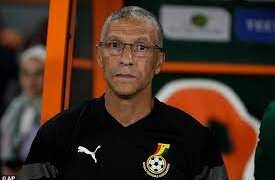An Alternative Dispute Resolution (ADR) Practitioner, Isaac Asare has entreated government to establish an autonomous National ADR Office set out by law to help speed up justice delivery.
Mr. Asare said the Centre when established will provide trained ADR personnel offering professional services running concurrently with the Court system to deal with Cases that otherwise are not necessary to be sent to court.
Speaking to Abdul Hayi Moomen on GTV’s flagship talk show, ‘Moomen Tonight’ on avenues to access ADR services, Mr. Asare explained the important role the Centre could play to reduce the burden on the Courts.
The programme was meant to educate the general public on ADR as part of the implementation of the USAID Justice Sector Support Activity (JSSA).
Mr. Asare indicated that the Act also required that the National ADR Centre should be decentralized to have Regional and District offices to make ADR services more accessible.
“Currently, in the absence of the National ADR Centre, the Judicial Service has established an ADR Centre which is different from what the Act specifies. With this, before disputing parties can access ADR service they still have to go to court for the Judge to recommend it to them. But if the Centre had been established, the parties would go straight to the office to seek mediation without stress,” he explained.
“The Centre will relieve the courts of some trivial matters that have choked it and making serious cases suffer,” he added.
The Rule of Law Specialist on the Justice Sector Support Activity (JSSA), Enoch Jengre called for more education on ADR to get the general public to resort to the mechanism as the first point of call than going to the courts.
“There are some avenues to get ADR services including private ones but whether the general public is aware of these avenues is another problem we must tackle. This calls for advocacy to create awareness on the avenues the public can access ADR,” he noted.
Both panelists urged the public to embrace ADR in resolving issues as it encourages friendliness.
“With the Courts, there is a winner and a loser but with the ADR, both parties make compromises to reach a consensus at the end so it is a good avenue the public must explore to resolve issues,” they encouraged.
About the USAID JSS Activity
The Activity focuses on monitoring and sustaining the implementation of Ghana`s Case Tracking System (CTS) which is being implemented in forty (40) target Districts in seven (7) Regions of Ghana. It aims at increasing citizen knowledge and access to Justice Sector services, strengthening advocacy interventions for accountability of key Justice Sector Institutions to improve justice delivery, and increasing citizens’ oversight and monitoring of criminal cases.




















































